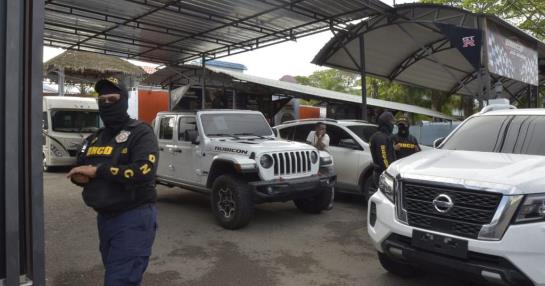The deputy of Cabildo Abierto, Eduardo Lust, visited the Domingo Arena prison on February 24where several of those sentenced for crimes against humanity committed in the last civic-military dictatorship are found, and confirmed to The Observer what plans a new bill with a “legal basis” that aims to provide a “fundamental solution” to the situation of these people.
Lust assured that he is studying the argumentative basis of the project, which he reported will be an articleand detailed that will be ready at the end of march. As stated, the text may generate a political rejection, but he does not believe that it has a “legal” refutation.
You see it, so far, as “a contribution to the discussion”, although he does not believe that it is sanctioned because sometimes “the political is above the legal”he explained.
The deputy of the coalition seeks that the detainees in Domingo Arena have “another method of punishment”, such as house arrest, or freedomand clarified that “does not enter” into the discussion of whether or not the people involved committed crimes against humanity.
At the meeting the inmates conveyed to Lust that they believe they are “unjustly imprisoned”, and maintain that “the system forgot them”but they didn’t talk about “what they did”, told the legislator of Cabildo Abierto.
Second try
This would be the second try of Cabildo Abierto in search of trying to remove the repressors from Domingo Arena, together with the bill that intends to give house arrest for all people over 65 years of age.
This project is promoted by the leader of Cabildo Abierto, Guido Manini Ríos, who on December 24, 2021 he also visited Domingo Arena to greet the detainees prior to Christmasalong with Senator Raúl Lozano.
At this meeting, the lobbyists transmitted the project to the prisoners, and Lozano declared to The Observer what he was confident that the necessary votes would be reached to sanction the law with the support of whites and reds.
However, None of the coalition parties showed their explicit support for the Open Cabildo initiative., and the parliamentary commissioner, Juan Miguel Petit, recommended rejecting the initiative.
“An automatic house arrest regime cannot be established for a certain population group. That has to be resolved on a case-by-case basis. By doing it with an automatism that is mandatory for the judge breaks with all the logic of the Criminal Procedure Code (CPP), which took the country decades to overcome,” Petit said at a press conference on November 23.















